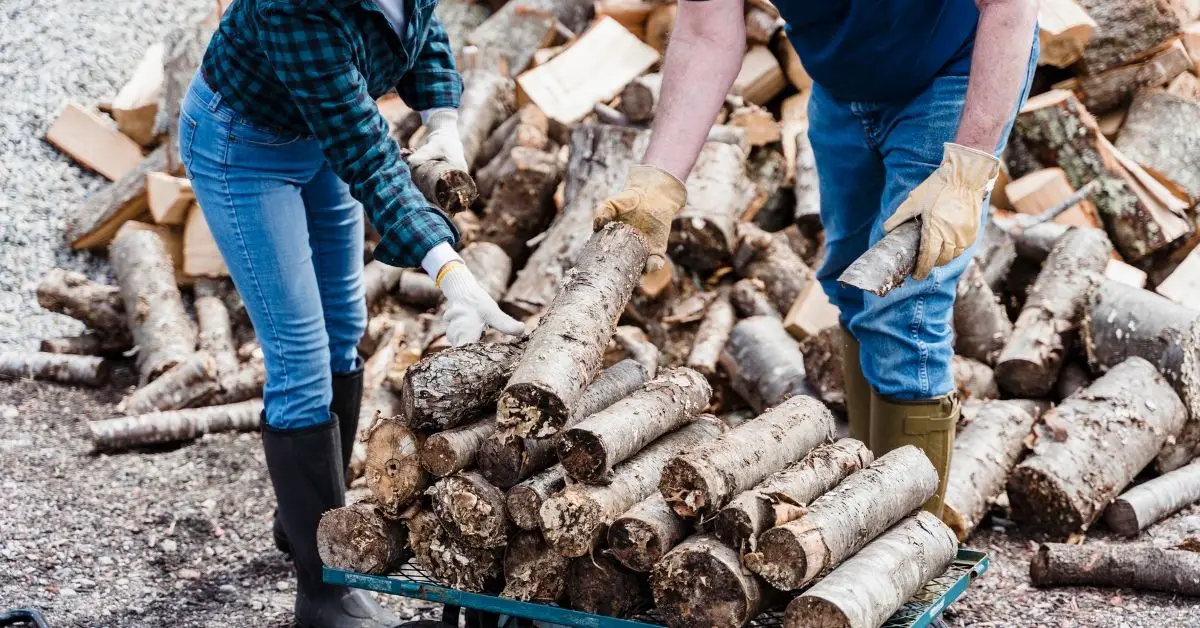Share

| Image | Product | Rating | Price |
|---|---|---|---|
 | Southwire GLOVE1L ELECTRICIANS WORK GLOVES | 4.6/5 | More Details |
 | Electrical Insulated Lineman Rubber Gloves | 4.5/5 | More Details |
 | Electrical Insulated Lineman Rubber Gloves Electrician High Voltage | 4.4/5 | More Details |
 | Electrical Insulated Rubber Gloves Electrician 12KV High Voltage Safety Protective Work Gloves | 4.3/5 | More Details |
 | Class 0 High Voltage Insulated Electrical Gloves | 4.3/5 | More Details |
- The Importance Of Wearing Gloves For Electrical Work
- Picking The Best Gloves For Electrical Work: Our Top 5!
- 1. Southwire GLOVE1L ELECTRICIANS WORK GLOVES
- 2. Electrical Insulated Lineman Rubber Gloves
- 3. Electrical Insulated Lineman Rubber Gloves Electrician High Voltage
- 4. Electrical Insulated Rubber Gloves Electrician 12KV High Voltage Safety Protective Work Gloves
- 5. Class 0 High Voltage Insulated Electrical Gloves
- Buyers Guide: How To Pick The Perfect Glove For You
- Gloves For Electrical Work FAQ’s
If you are looking for the best gloves for electrical work, then this article is just what you need! We will discuss five of the most popular brands and styles of gloves that are designed to protect your hands from heat, sparks, lightning strikes, and more. Each one has its own benefits, so be sure to read through them carefully.
The Importance Of Wearing Gloves For Electrical Work
Gloves can be used when working with woods, metals, chemicals, and other materials. Many people who work with electricity neglect to wear gloves. They say that it’s not necessary and just gets in the way of their work.
However, electrical accidents may result if proper precautions are not taken, such as wearing protective clothing like rubber or leather gloves when working around cords, power tools, and other electrical devices.
Some of the risks associated with not wearing gloves while working around power lines include:
- Burns from touches wires or contacts carrying current
- Injury to hands resulting in cuts and lacerations, which can cause infections if contaminated by dirt, grease, oil, or water
- Shock caused by contact with current
- Death from accidental electrocution
Picking The Best Gloves For Electrical Work: Our Top 5!
1. Southwire GLOVE1L ELECTRICIANS WORK GLOVES
This innovative and durable Southwire electrician’s gloves are for any type of use, designed to provide comfort while maintaining durability without sacrificing dexterity. The fingers are also designed to be especially slip-resistant, so pulling wire is safer and easier than it has ever been before!
They’re breathable too! The back of the glove is made of spandex for a comfortable feel that makes them perfect for long shifts in hot temperatures.
To top it off, these gloves have an ingenious index finger that doubles as padding from stress on your hands when handling heavy objects like steel pipes or rolls of insulation board. This product will change how you work forever!
2. Electrical Insulated Lineman Rubber Gloves
This insulated lineman’s gloves are made of high voltage dielectric rubber to be resistant to electricity. Not only does this footwear help reduce hand fatigue and chafs, but it also ensure your safety when working with electrical equipment!
The gloves are designed for those who work in heavy industries where electric power can pose a threat. They come as a pair and differ from lighter, more dexterous rubber gloves because these ones provide insulation from potential harm for those who handle very large currents or other highly charged electronics.
In order to make sure the dielectric properties of the material contours around sensitive areas to better protect you while you’re working, both palms and knuckles have been reinforced with a protective layer!
3. Electrical Insulated Lineman Rubber Gloves Electrician High Voltage
Paying close attention to hand shape, the gloves have been ergonomically contoured to help reduce hand fatigue and chafing. Naturally designed with superior dielectric rubber for increased durability, flexibility, and comfort.
Weighing in at about 200g (90lb) per glove, the thickness is meant for electricians performing high voltage work such as climbing poles. Furthermore, they can also be used as auxiliary security appliances; we recommend that you test them out on any items under 3000 volts!
4. Electrical Insulated Rubber Gloves Electrician 12KV High Voltage Safety Protective Work Gloves
Protect your hands with these Electrical Insulated Rubber Gloves Electrician 12KV High Voltage Safety. They are ergonomically contoured to reduce hand fatigue and chafe, ensuring you can work longer periods without discomfort.
Made of the finest dielectric natural rubber, which has demonstrated superior dielectric properties that provide increased durability, flexibility, and comfort for electrician lineman at high voltages.
The gloves test voltage is 12000V, under 3000V as a basic security appliance and 3000V-8000V as auxiliary safety appliances. These versatile rubber insulated gloves also work well for high-voltage machine operations. Gear up now so you know what to do on the job!
5. Class 0 High Voltage Insulated Electrical Gloves
Insulating gloves are essential for Linesman, Electricians, Utility Construction, House Inspection to provide insulation against live electrical current. Insulation Gloves are resistant to voltage up to 1,000 V AC/1,500V DC.
The test date of the glove will be stamped on the product, so you know which batches went through quality control first. The natural rubber provides elasticity and comfort without being too thick or stiff. These gloves are available in 8-11 sizes, with a hand circumference between 9 inches and 11 3/4 inches (21 cm – 30cm).
Buyers Guide: How To Pick The Perfect Glove For You
The Material
Look if the gloves contain natural rubber, neoprene or PVC. Natural Rubber is the best material to ensure that electricity doesn’t go through it and also provides durability and flexibility at the same time.
Neoprenes are usually better than PVCs because they provide insulation for a longer period of time while still being flexible enough so you can wear them for hours without feeling too uncomfortable.
The Thickness
Electrical gloves are usually made out of thick rubber, but some models come in a thinner version for increased dexterity and grip when you need it the most. If you don’t want to wear an entire pair of electric gloves on your hands at all times, then pick a glove that is not as thick, so you can wear it only when you need to.
Types Of Gloves
There are also different types of gloves such as fingerless gloves, regular gloves that have a thumb and index finger, or just regular gloves.
The difference between them is that the first type won’t cover your fingers while you’re working which can be dangerous because all the wires around you could shock your hands if they get in contact with one. Regular Gloves will provide more protection but don’t expect to use them for a long period of time.
The Price
Price is usually not an indicator of quality, so don’t go for the cheapest one in the store, but also don’t pick the most expensive one just because it has a fancy logo on it that makes no sense at all. Find gloves that fit your budget and are made out of premium materials so you can be sure they are safe to use.
The Voltage Tested Against
This is by far the most important aspect of any electric or insulated gloves that you will ever buy because it proves that your product was tested for its durability and insulation capabilities before being put on sale in stores across America.
The voltage should always be at least above the working voltage of whatever you are going to use them for. If not, then don’t buy it because your gloves will just break and give you a nasty electrical burn in no time at all!
Gloves For Electrical Work FAQ’s
How do I clean my insulated gloves?
You can use warm soapy water to wash them off, but make sure you don’t put any chemicals on the glove because it will start to break down. If there are tough stains that won’t come out with just soap and water, pick a degreasing product or acetone from your local hardware store.
How do I repair my gloves?
If you have a hole in your glove, it might be covered up by the rubberized exterior, but if this doesn’t work for you, don’t worry because there is an easy fix. Use some electrical tape or any kind of adhesive that will keep all small pieces together and cover the holes with them
How do I know which glove size to buy?
Every manufacturer has a different chart for their products, but it is usually better to get one that fits you well instead of getting the biggest or smallest size available. A tight fit will keep your gloves on without any problems while also giving you enough insulation so no current can pass through them and stop you from completing your job.



0 Comments